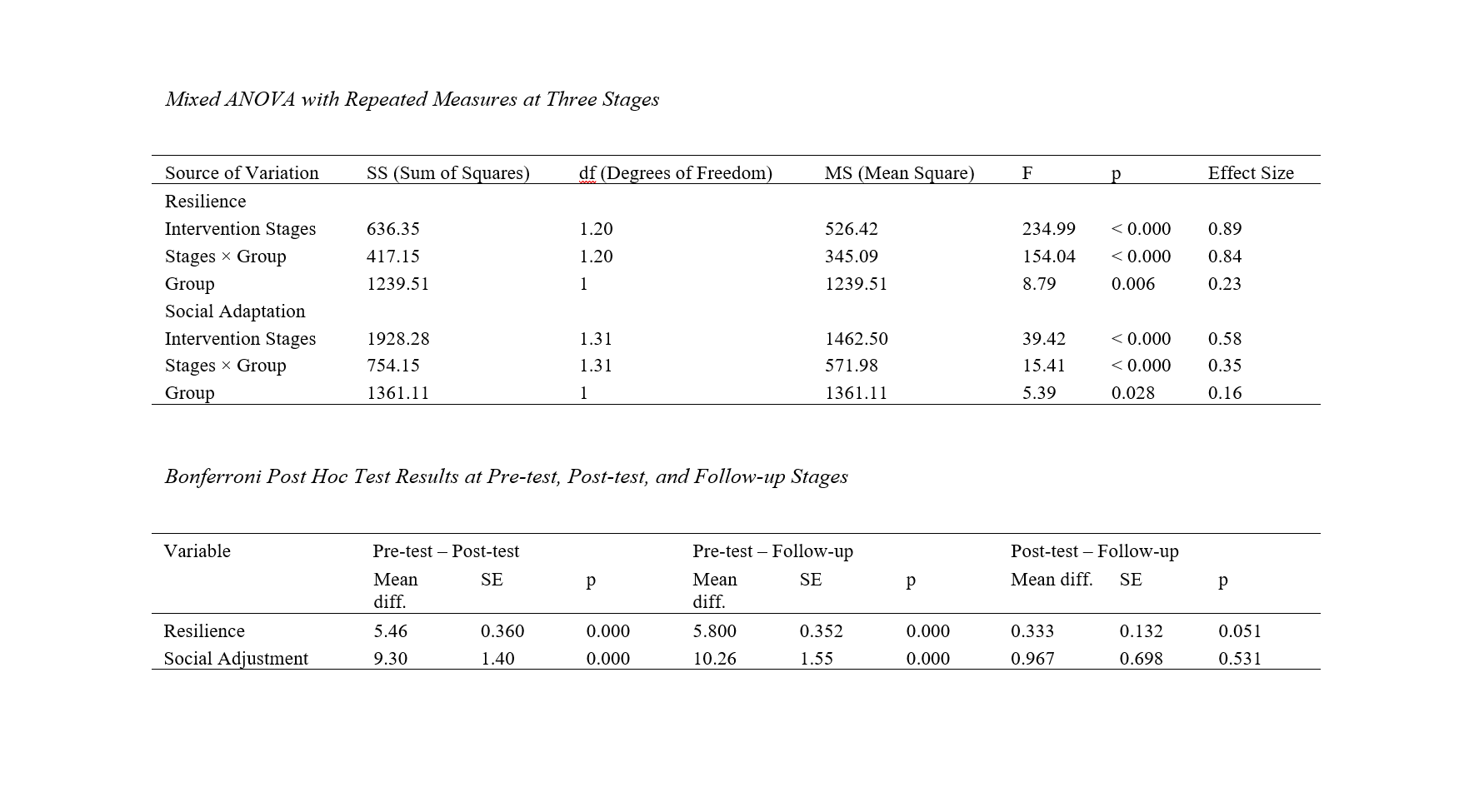Effectiveness of the Luthans Psychological Capital Intervention Model on Resilience and Social Adaptation of Turkmen Divorced Women
Abstract
Objective: The aim of the study was to investigate the effectiveness of the Luthans psychological capital intervention model on the resilience and social adaptation of Turkmen divorced women.
Method: The research method was a quasi-experimental design with a control group, pre-test, post-test, and two-month follow-up. The population consisted of all Turkmen divorced women who had visited the Behravan counseling centers in Gonbad Kavous city in the first four months of the year 2019. Among them, 30 participants were selected and randomly assigned to either the experimental or control group. The experimental group received weekly group interventions in 10 sessions of 90 minutes each. Both groups completed the Resilience (Connor & Davidson, 2003) and Social Adaptation (Weissman & Paykel, 1974) questionnaires at three stages: pre-test, post-test, and follow-up. Data were analyzed using mixed ANOVA with repeated measures.
Findings: The findings showed a significant difference between the two groups in resilience (F=8.79, p=0.006) and social adaptation (F=5.39, p=0.028) at the post-test and follow-up stages.
Conclusion: Based on the findings of this study, it can be concluded that training in the psychological capital intervention model helps improve the quality of life of divorced women by enhancing resilience and social adaptation.
Downloads

Downloads
Additional Files
Published
Issue
Section
License
Copyright (c) 2024 mehdi Ghazalsaflou (Corresponding Author); Mehdi Rostami, Fatemeh Bay (Author)

This work is licensed under a Creative Commons Attribution-NonCommercial 4.0 International License.




















